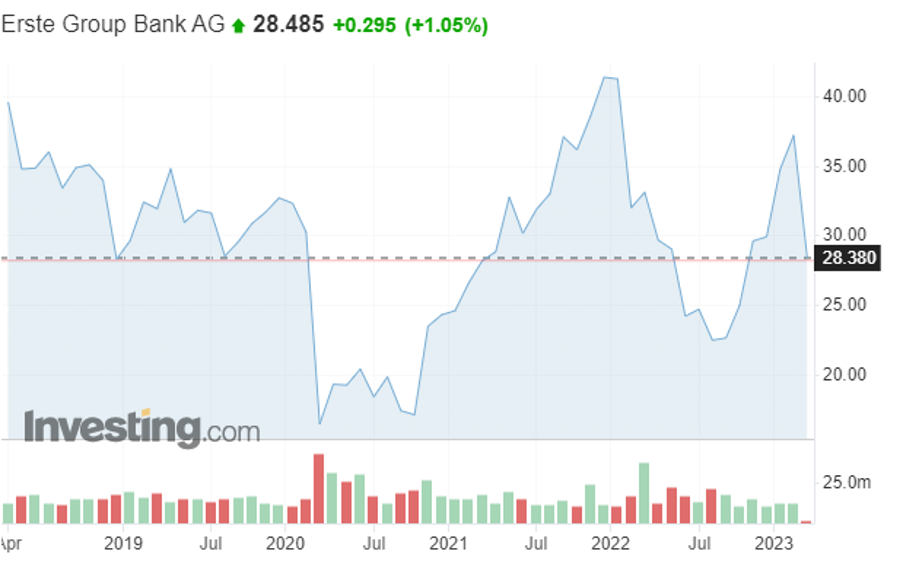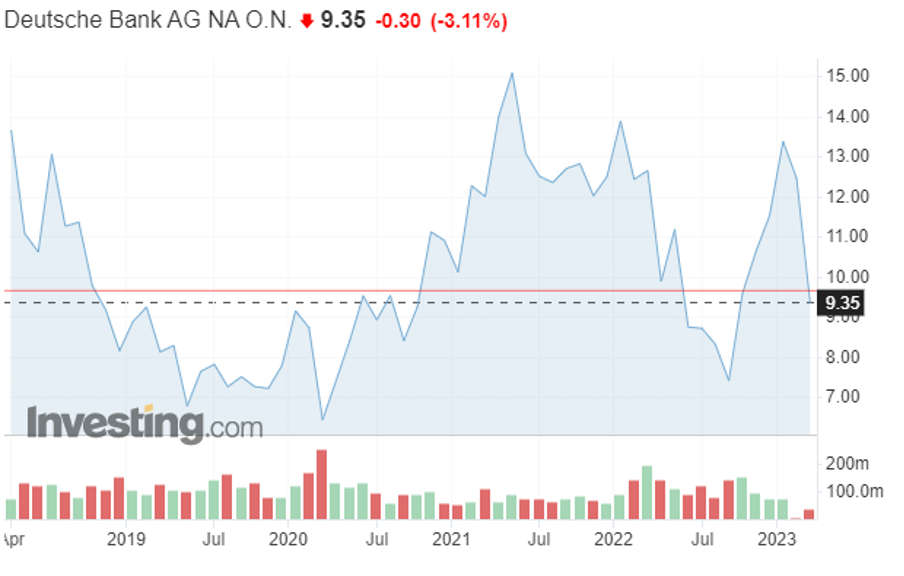Ko se dogaja v bančnem sektorju?
Silicon Vale Bank (SVB) je bila nenadoma prisiljena prodati svoje obveznice, da bi pokrila dvige gotovine, ki so jih stranke začele izvajati po novici, da je banka v težavah. V današnjem svetu, kjer se informacije širijo v nekaj sekundah, je to resen problem za finančno institucijo, saj lahko panika povzroči nenadne dvige sredstev strank in v najslabšem primeru, kot je bil primer banke SVB, privede do propada banke. Do takšnega položaja lahko zlahka pride tudi pri drugih bankah, zato so številni vlagatelji zaskrbljeni zaradi širjenja okužbe v panogi. Nekaj dni pozneje so se namreč pojavile težave tudi v Evropi, natančneje v primeru banke Credit Suisse. Vendar strokovnjaki menijo, da se nam ni treba bati situacije, podobne tisti, ki se je zgodila leta 2008 ob propadu banke Lehman Brothers.
Socialna omrežja:
Danes imajo številna tržna nihanja eno pomembno skupno lastnost. Ste opazili, kako družbena omrežja vplivajo na dogajanje na trgu? Dovolj je ena sama objava na Twitterju, na primer Elona Muska, in pozitivno razpoloženje ali panika se v nekaj minutah razširi po vsej panogi. Ta učinek smo opazili pri kriptovalutah, vsak dan pa ga doživljamo tudi na borzi. Ne glede na to, ali je informacija resnična, vlagatelji pogosto podležejo pozitivnemu razpoloženju ali paniki in začnejo premikati svoje naložbe.
Digitalizacija bančnega sektorja
V primerjavi z letom 2008, ko se je v ZDA začela finančna kriza, se je vlaganje in na splošno večina poslovanja preselila na spletni prostor, zato je nastalo digitalno bančništvo. Bančna panoga danes temelji na spletnem svetu, vloženi denar pa je mogoče upravljati, prenašati, dvigovati in izplačevati v nekaj sekundah. Na koncu vidimo, da virtualni prostor prinaša tudi pasti.
Implikacije in razvoj
Danes lahko opazujemo posledice doslej omenjenih težav. Ena od njih je padanje cen delnic evropskih bank. V mesecu dni sta na primer največji padec doživeli skupini Erste Group in Deutsche Bank, v obeh primerih za več kot 20 odstotkov.*

Vrednosti delnic banke Erste Group Bank AG v zadnjih petih letih. (Vir: Investing)

Kart: Uspešnost delnic Deutsche Bank AG NA O.N. v zadnjih petih letih. (Vir: Investing)
Vse pa zanima, kaj se lahko zgodi v naslednjih nekaj mesecih. V najboljšem primeru bi lahko bili ti dogodki izjema in težave bi lahko prišle pod nadzor, ko se bo na trge vrnilo zaupanje. Bolj verjetno pa je poslabšanje finančnih pogojev, saj se bodo banke začele bolj izogibati tveganju. Majhna bančna posojila bi tako postala manj dostopna, kar bi škodovalo gospodarski aktivnosti. Najslabši možni scenarij bi lahko bil prihod obsežne bančne krize. Med takšno krizo bi se gospodarska aktivnost začela zmanjševati, kar bi vodilo v dolgotrajno recesijo, vendar upajmo, da bo ta možnost ostala le teoretična.1]
Olivia Lacenova, analitičarka družbe Wonderinterest Trading Ltd.
* Pretekli rezultati niso zagotovilo za prihodnje rezultate.
[1] V prihodnost usmerjene izjave temeljijo na predpostavkah in trenutnih pričakovanjih, ki so lahko netočna, ali na trenutnem gospodarskem okolju, ki se lahko spremeni. Takšne izjave niso jamstvo za prihodnjo uspešnost. Vključujejo tveganja in druge negotovosti, ki jih je težko predvideti. Rezultati se lahko bistveno razlikujejo od tistih, ki so izraženi ali nakazani v izjavah, usmerjenih v prihodnost